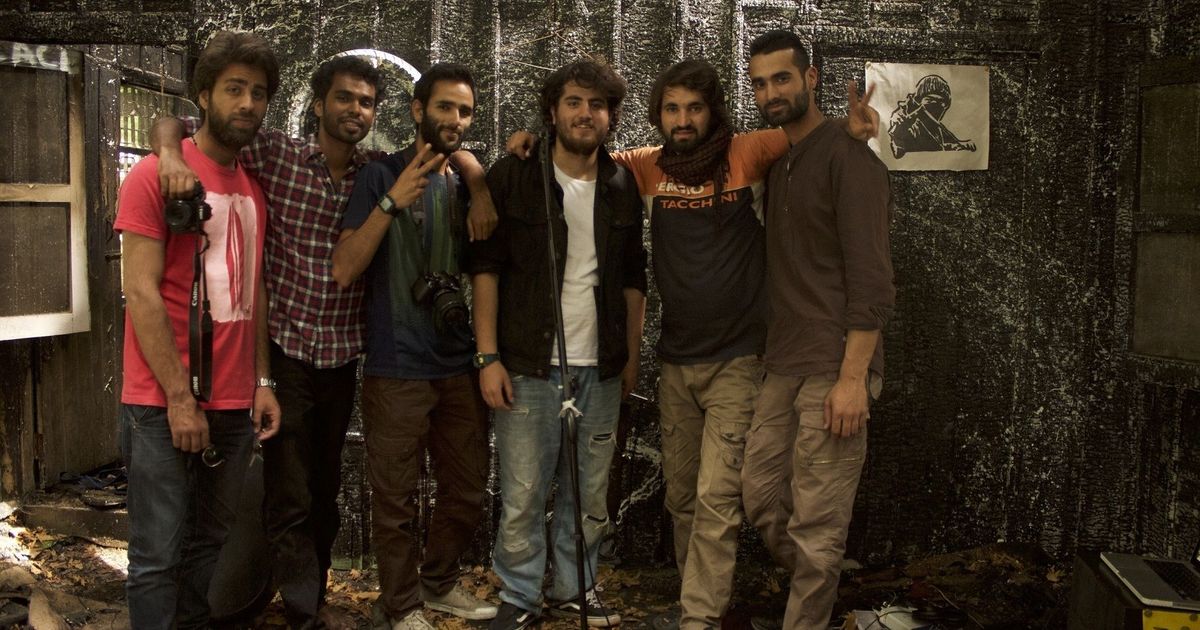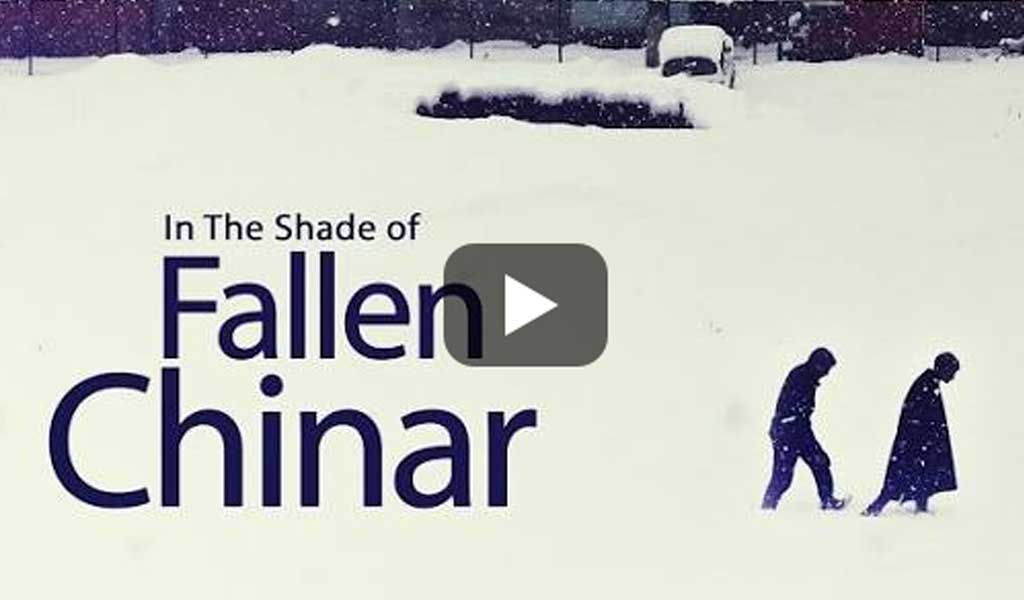Film “threatened the integrity of the country”, was “sensitive in nature” say Information Ministry officials.
Short film ‘In the Shade of fallen Chinar’ which looks at alternate forms of protest, taken up by youth in Kashmir, was blocked last week at a film festival in Kerala.
Directed by Fazil N.C and co-directed by Shawn Sebestain, the film was barred from being screened in the competition and focus sections of the Xth International Documentary short film festival of Kerela, by the union information and broadcasting ministry.
Four documentary films – including two on Kashmir, one on the suicide of Hyderabad scholar Rohith Vemula and another on Delhi’s Jawaharlal Nehru University have not received a nod to get screened from the union Information and Broadcasting ministry as “all of them are about student protests, against government high-handedness, insensitivity and censorship”.
The short film, in the shade of Fallen Chinar, put across those factors that inspired the art and form of resistance in the conflict-ridden valley.
The plot of the film revolves around the young group of artists, who are a part of the conflict, studying in the University of Kashmir.
While talking to FreePressKashmir, director ‘In the shade of fallen chinar’ Fazil said, “I’m happy that they(I&B) have banned the screening of this documentary film, as it gave the film more voice, more power, more discussion among masses.”

Cast and crew of the film, ‘In the shade of fallen chinar’
The documentary also depicts how fallen Chinar trees in Kashmir University’s Naseem Bagh have become the gathering point for art and music lovers against alleged army excesses in the Valley.
The short film features Ali Saifudin, Syed Shahriyar, Saba Nazki, Ovais Ahmad, Mu’Azzam Bhat, Khytul Abyad and Tabiah Qari.
While sharing the details with FreePressKashmir, Dibyesh Anand, Professor of international relations at university of Westminster asserted “India’s claim to be a democracy gets exposed every now and then in Kashmir. This censorship is illustrative of the anti- democratic, intolerant, dehumanising, and thus a colonial rule imposed on people of Kashmir. Indian state is fearful of its own people realising the truth of occupation and hence uses a mix of hyper nationalism and censorship of alternative views.”
Yusuf Jameel, a noted journalist based in Kashmir said “I believe banning the screening of the film means curtailing the liberty of expression and thought.”

According to a research scholar of music and fine arts in the Kashmir University, who did not want to be named, said “ban on the screening of the film, clearly depicts the frustration of the union government. They (union govt) are afraid not only of stone pelting and other incidents in the state, but are scared about films and even TV screens,” he said, referring to recent ban on TV channels broadcasted from Pakistan.
“I believe the state government is also helpless, you see our every human right is being curbed by administration, every freedom of expression and thought, is confined by using the term ‘ambit of Indian constitution’” said another student of Kashmir university on the condition of anonymity.
“They(government) don’t want people to watch the truth, and see the oppression that is being done by their forces in Kashmir, that’s why they are banning screenings of such films, they cannot bear the truth”, said Syed Ubaid, a student at the university.
Meanwhile, according to Scroll.in, which called the ban “draconian” a protest letter signed by 160 filmmakers across the country, was addressed to the Minister of information and broadcasting, M Venkayah Naidu that reads:
“A brief perusal of the themes of the films denied screening – the suicide of research scholar Rohit Vemula, on artists in Kashmir, and on the student protests at JNU – indicates that each one of these films is dealing with prominent political issues that have led to much discussion within the country. It is also clear that the government of the day is resorting to draconian action to stifle all such political debate and indeed Article 19 of our constitution, which guarantees the right to freedom of expression to every citizen of this country. We also note that the Ministry of Information and Broadcasting has not given any reason for its withholding of screening permission.”
Meanwhile, the Ministry officials say, they scrutinize documentary films on four particular parameters. They concluded that films in question were “sensitive in nature” and threatened the “integrity of the country”, the officials said.
“It is like a new life, a new power for our film, there is a sudden wave of solidarity shown by students, film fraternity and civil society alike,” said Fazil, the director of the film.
“The film is already on youtube with a good platform and a huge reach, as the film now turned a topic of discussion due to the recent ban, people have recognised it more. Lots of people across India are watching it, so I’m glad that people are supporting this film,” Fazil said.
“In the future, I would definitely screen my film in colleges, universities and other events,” he added.
The 16 minute documentary, available on Youtube, has been getting positive reviews for its unique treatment of the subject. It received a Special Jury Award at Signs 2016 Documentary and Short Film Festival held at Kochi.





